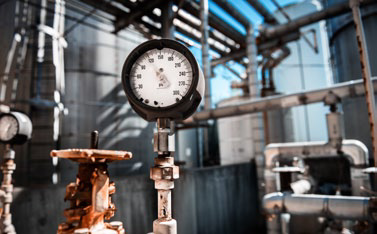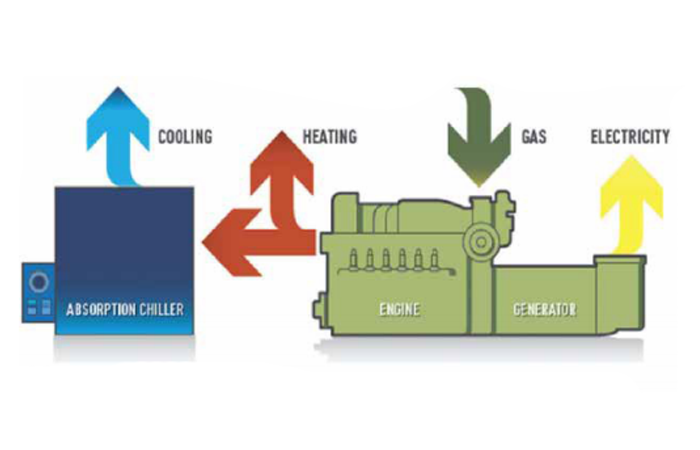Tri-Gereration


Tri-generation is the generation of three energy outputs (namely Electricity, Heat, and Chilled Water) from one single fuel input. Typically, natural gas or diesel can be used as fuel in an on-site Combined Cooling, Heat and Power plant. A Tri-Generation plant would typically consist of three primary components:
A CHP generation plant for the purposes of converting the fuel input to usable electricity and heat.
An absorption chiller for the purposes of converting some of the CHP heat output to usable chilled water
A controls and distribution system for the purposes of delivering the above energies to the Client’s premises.
Tri-Generation plant would typically consist of three primary components:

An ‘Absorption Chiller’ is a device that uses heat instead of mechanical energy to provide cooling. It does this via a thermal compressor, which consists of an absorber, a generator, a pump, and a throttling device. The thermal compressor of an absorption chiller replaces the mechanical vapour compressor used in electrical chillers. The two most common refrigerant/absorbent mixtures used in absorption chillers are water/lithium bromide and ammonia/water.
